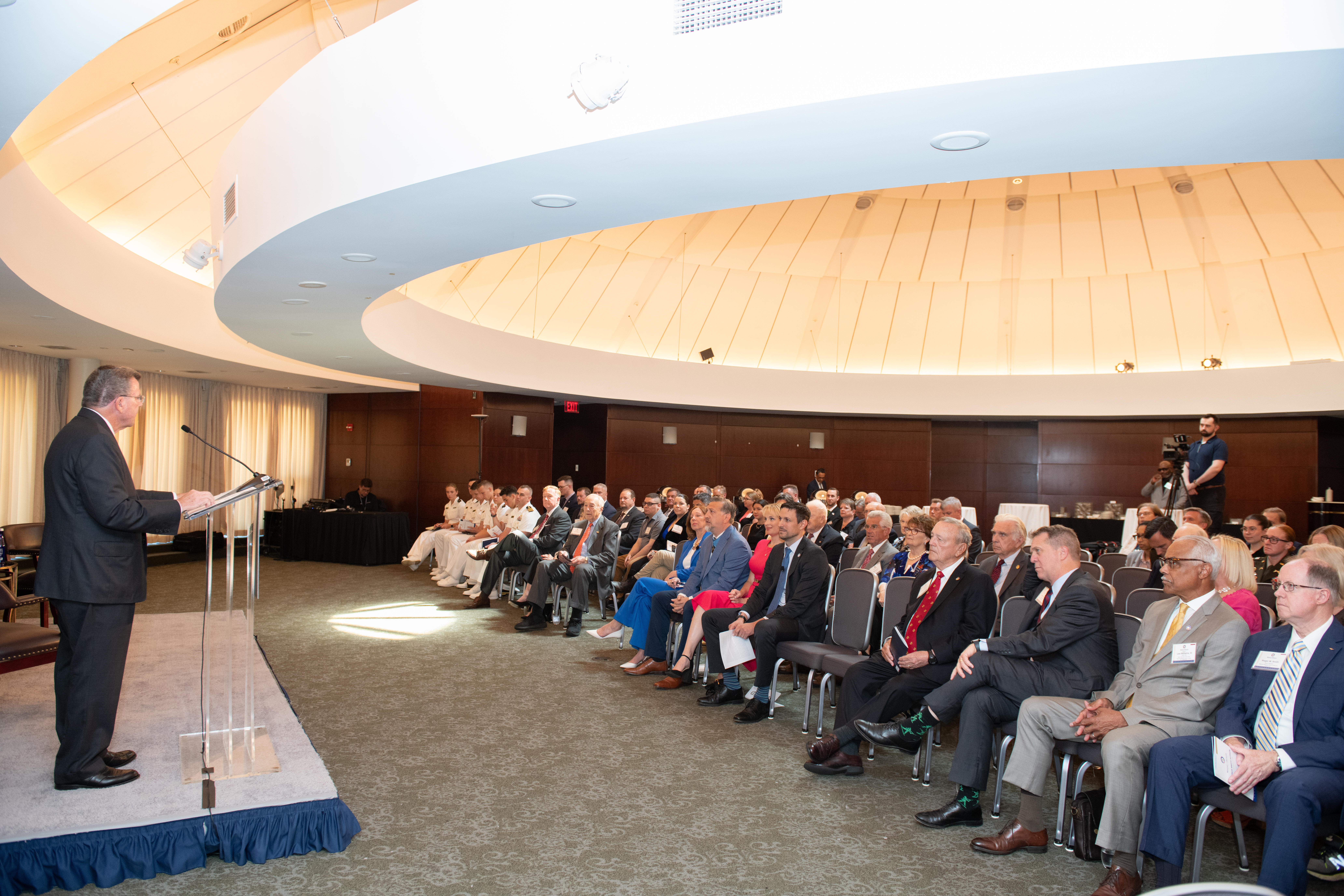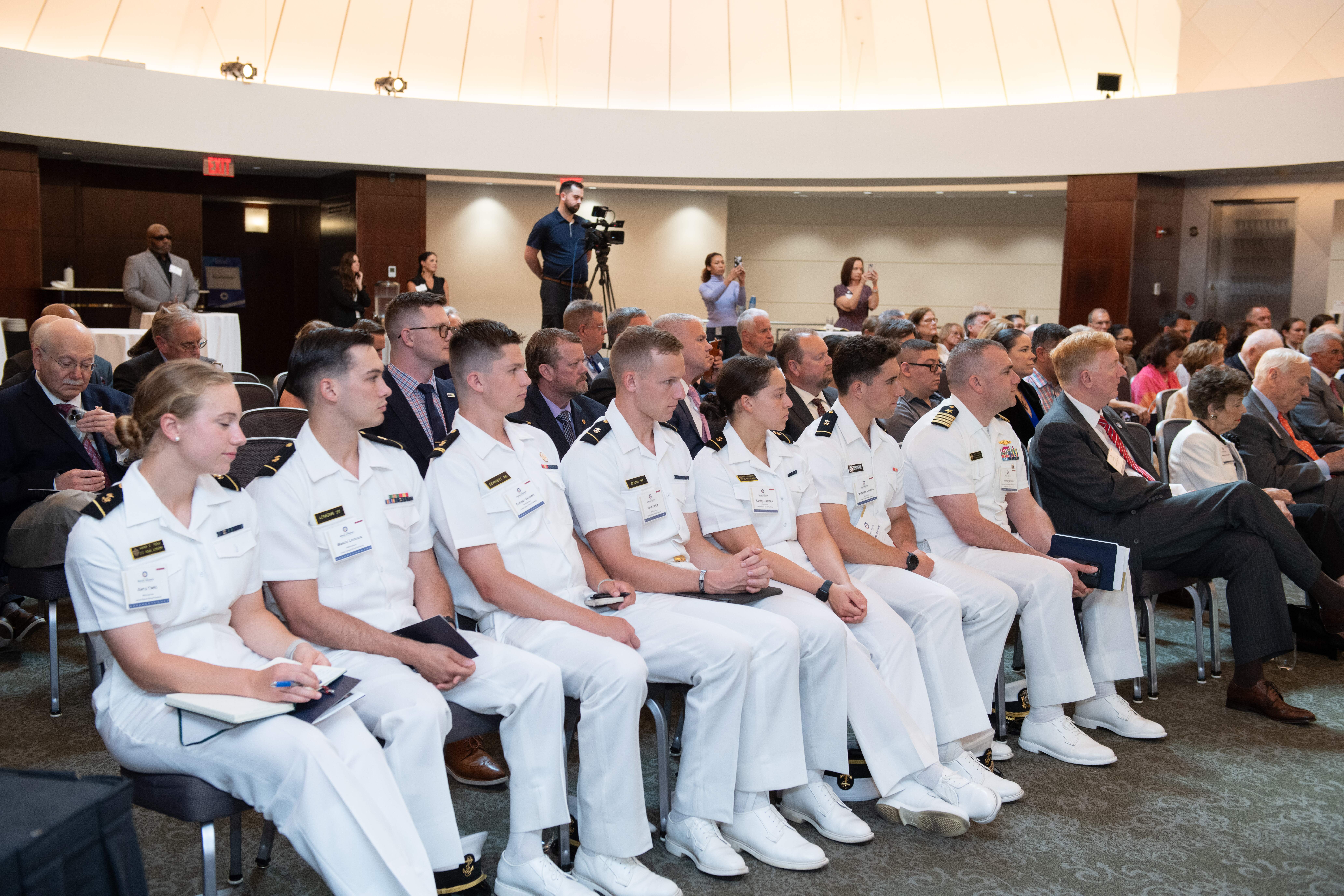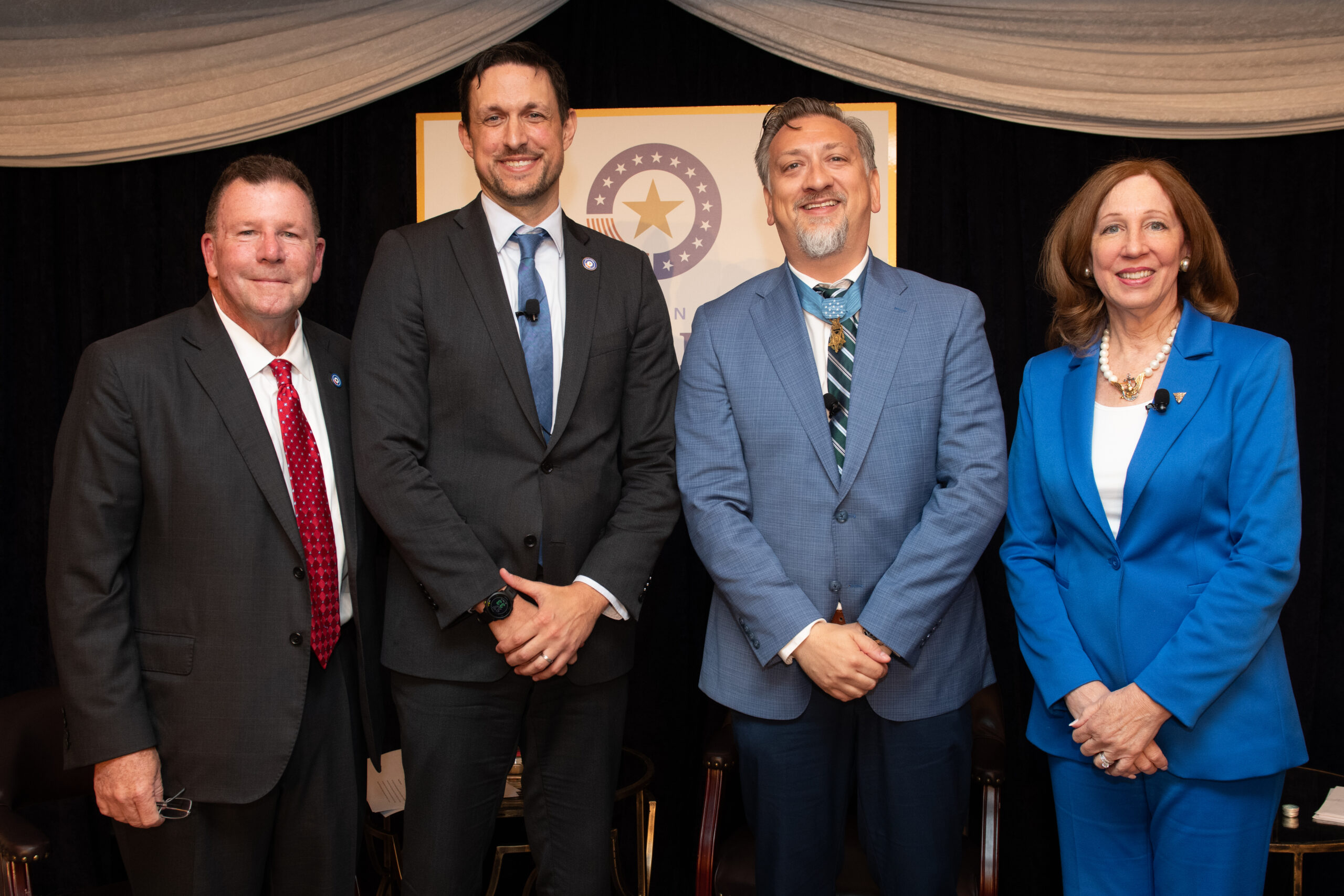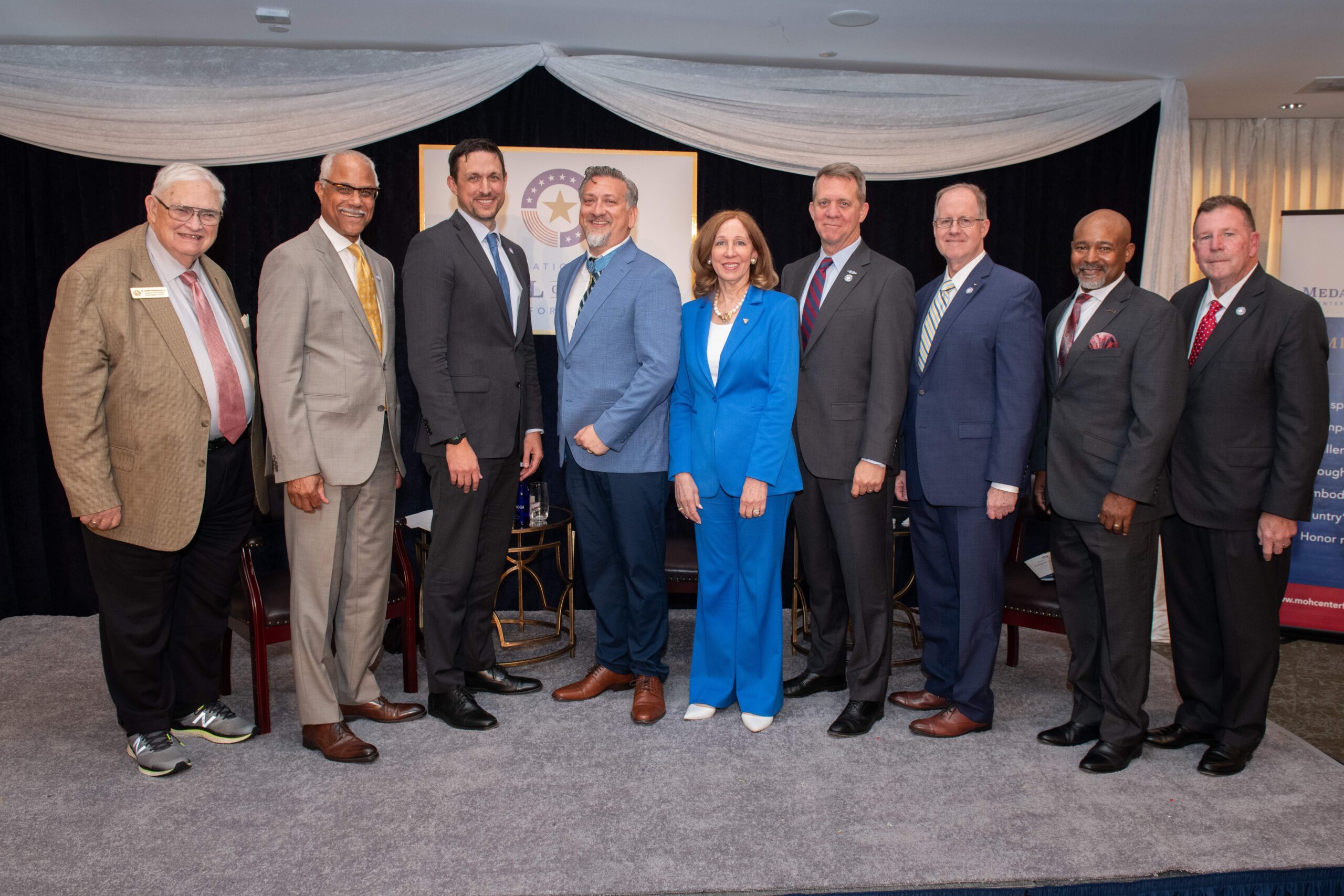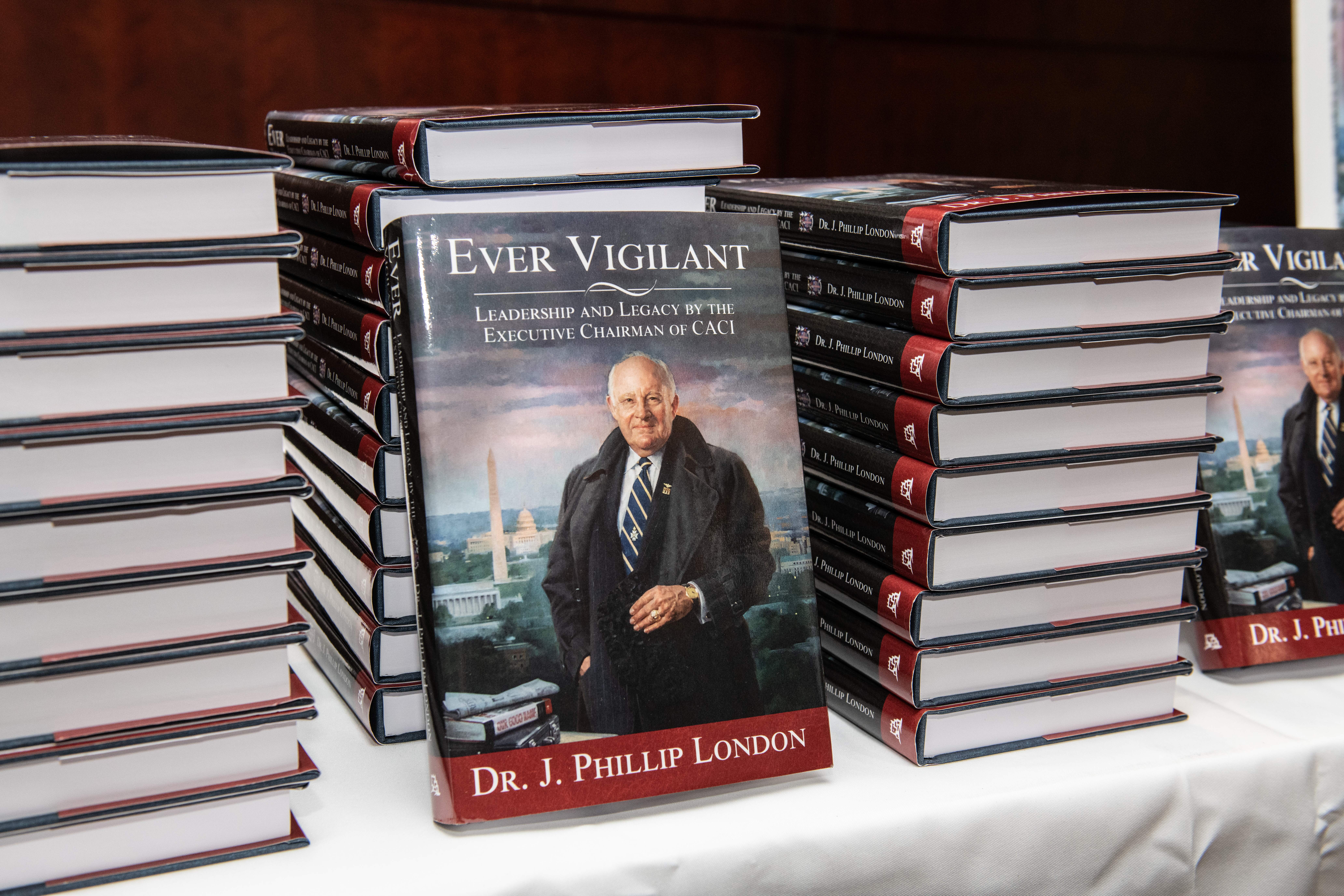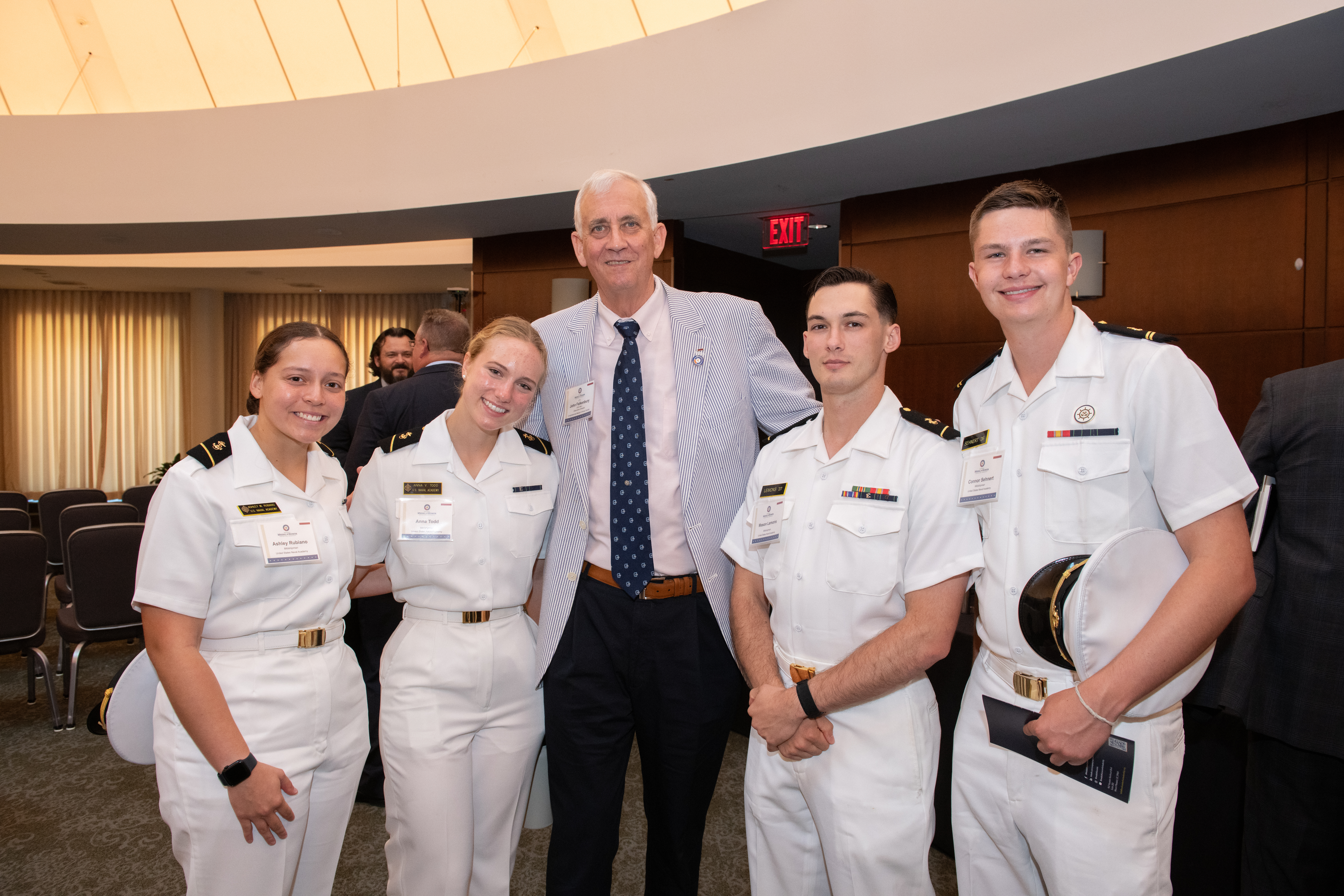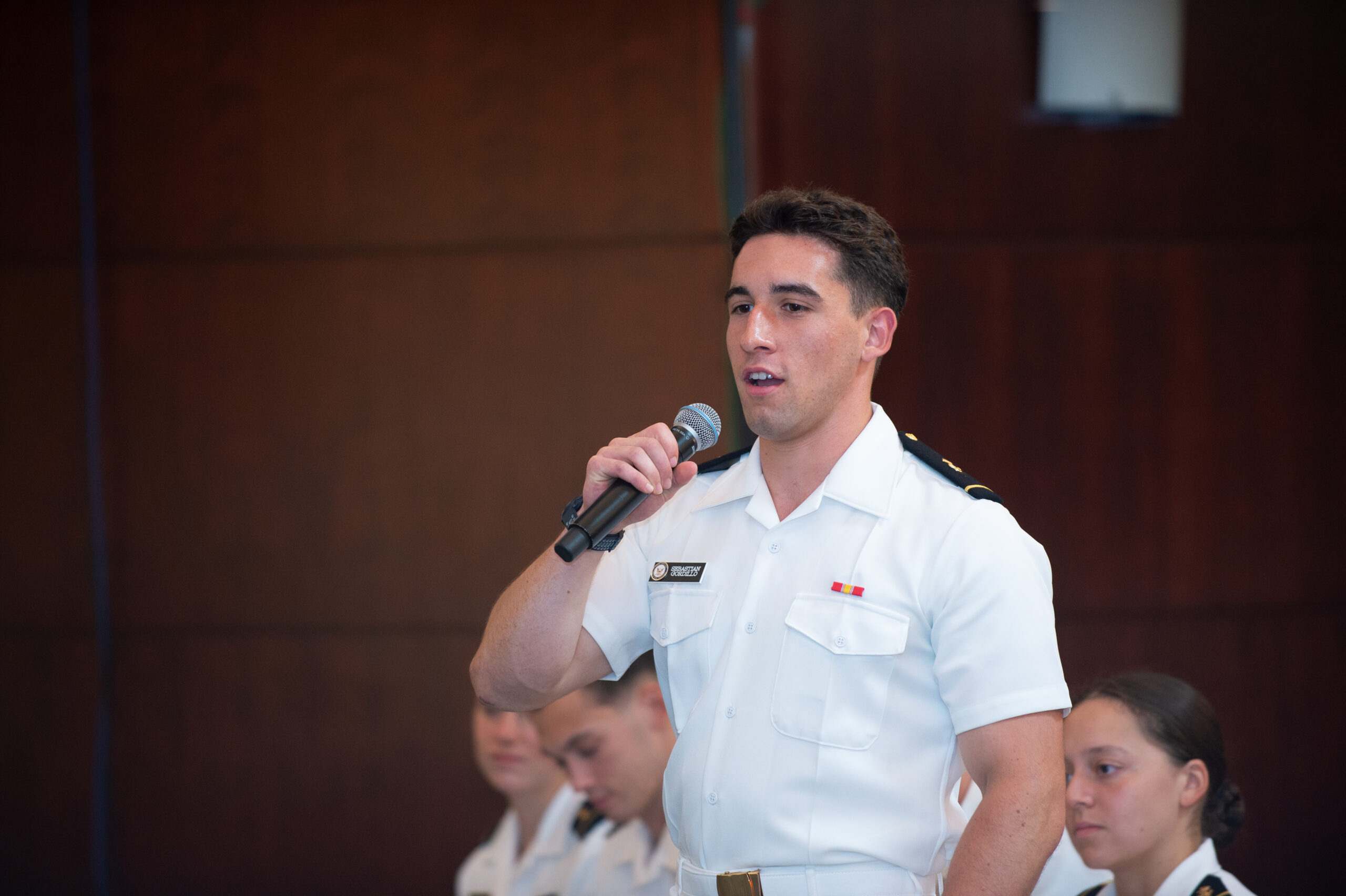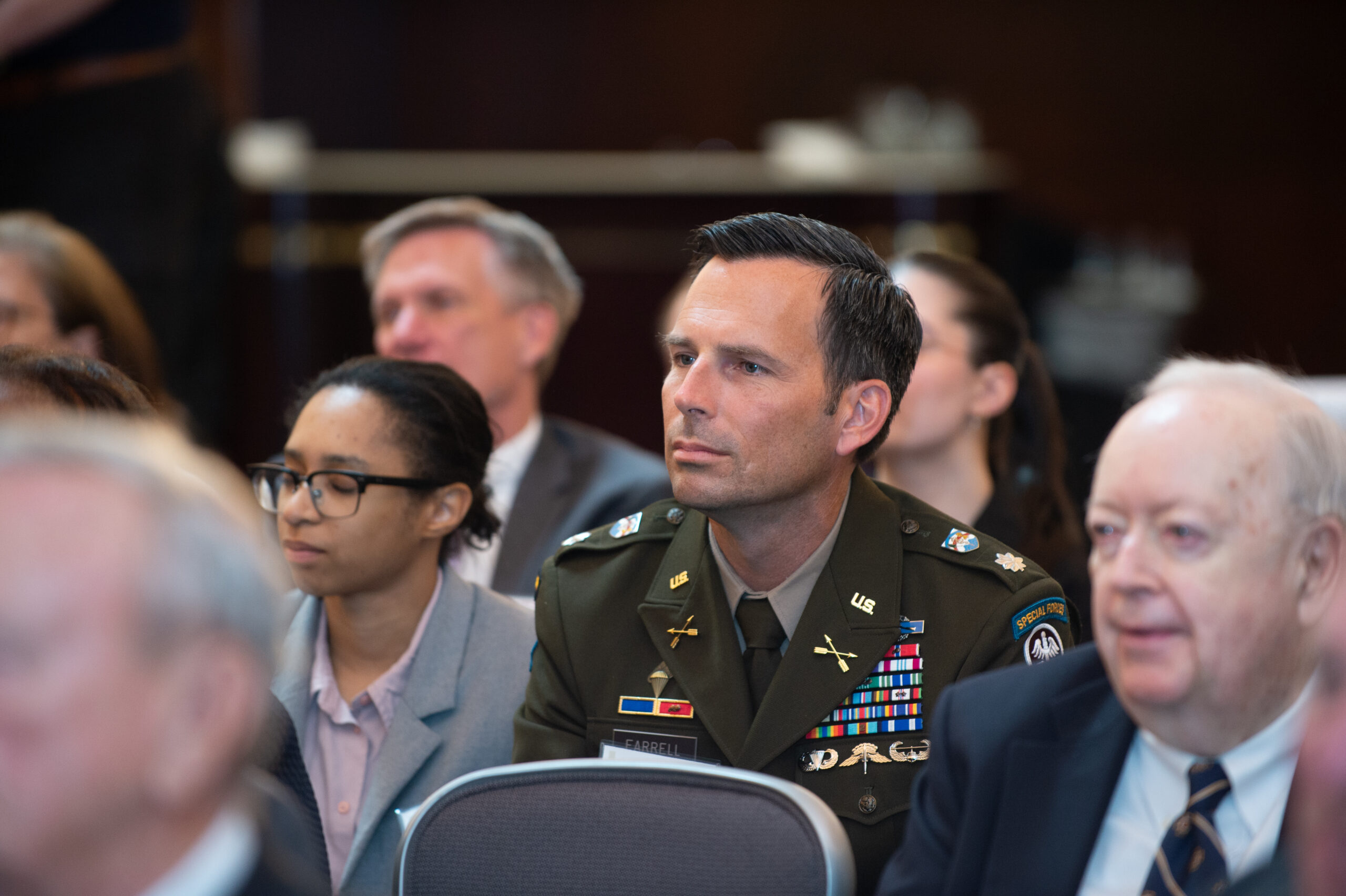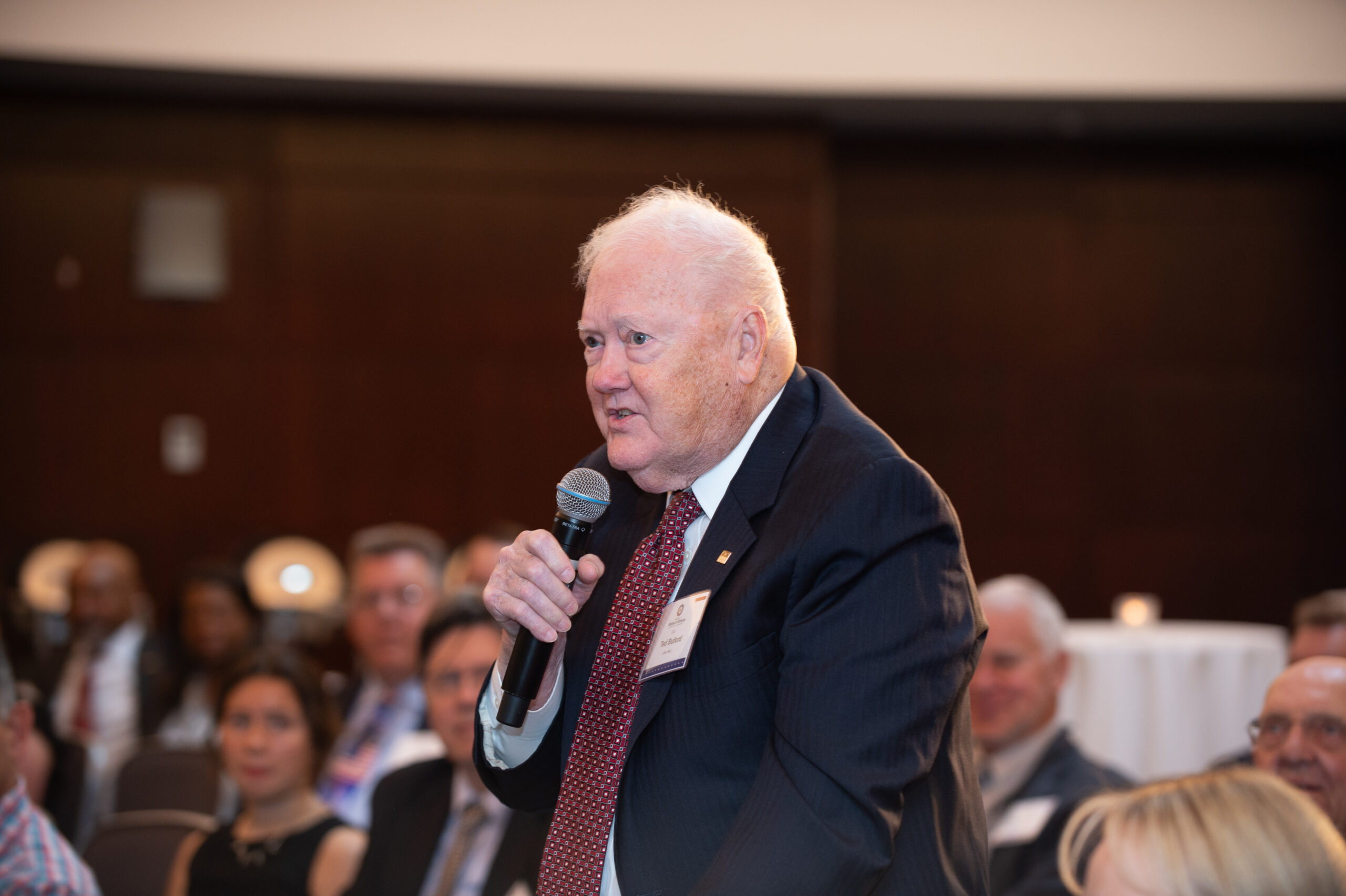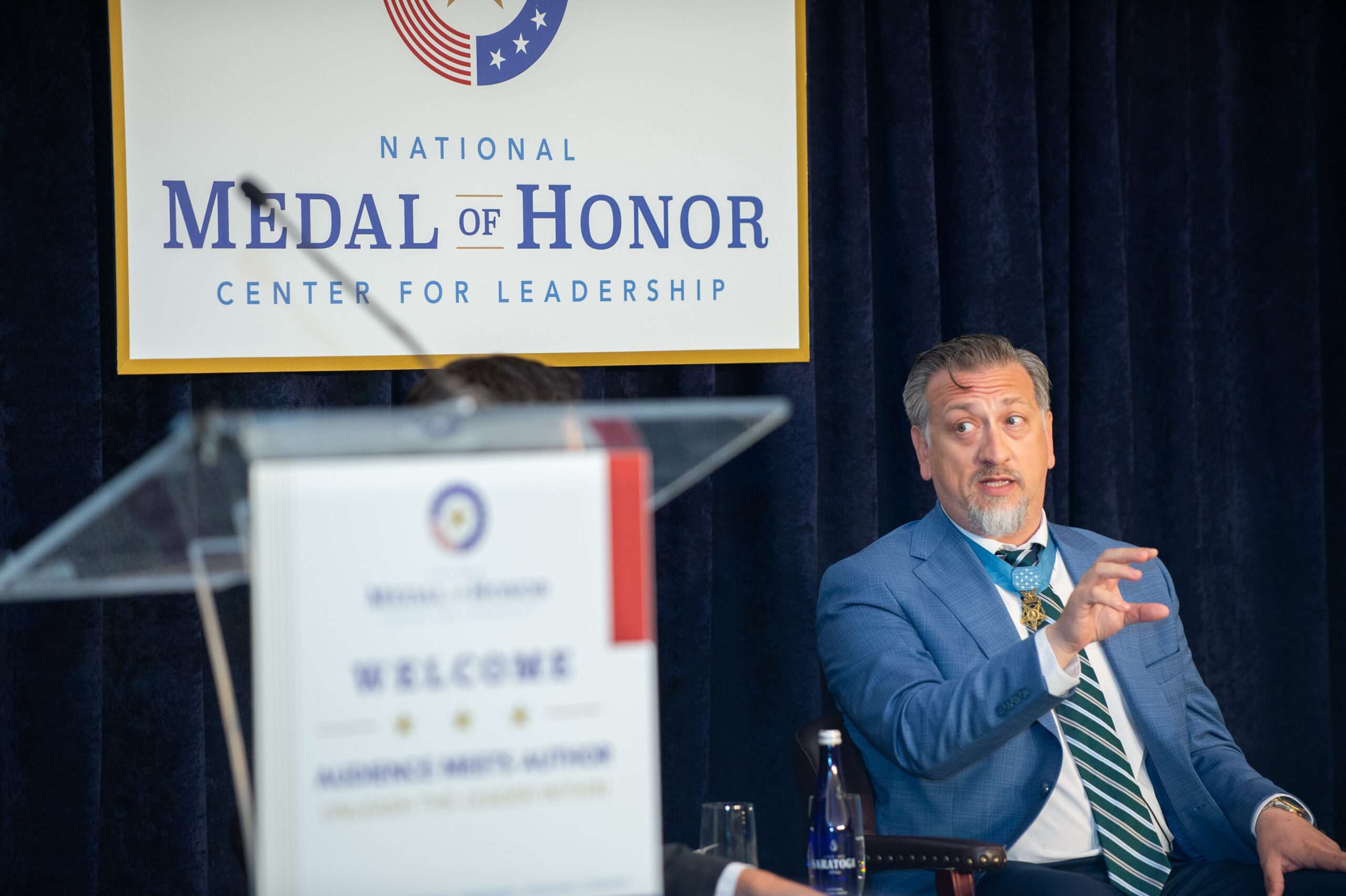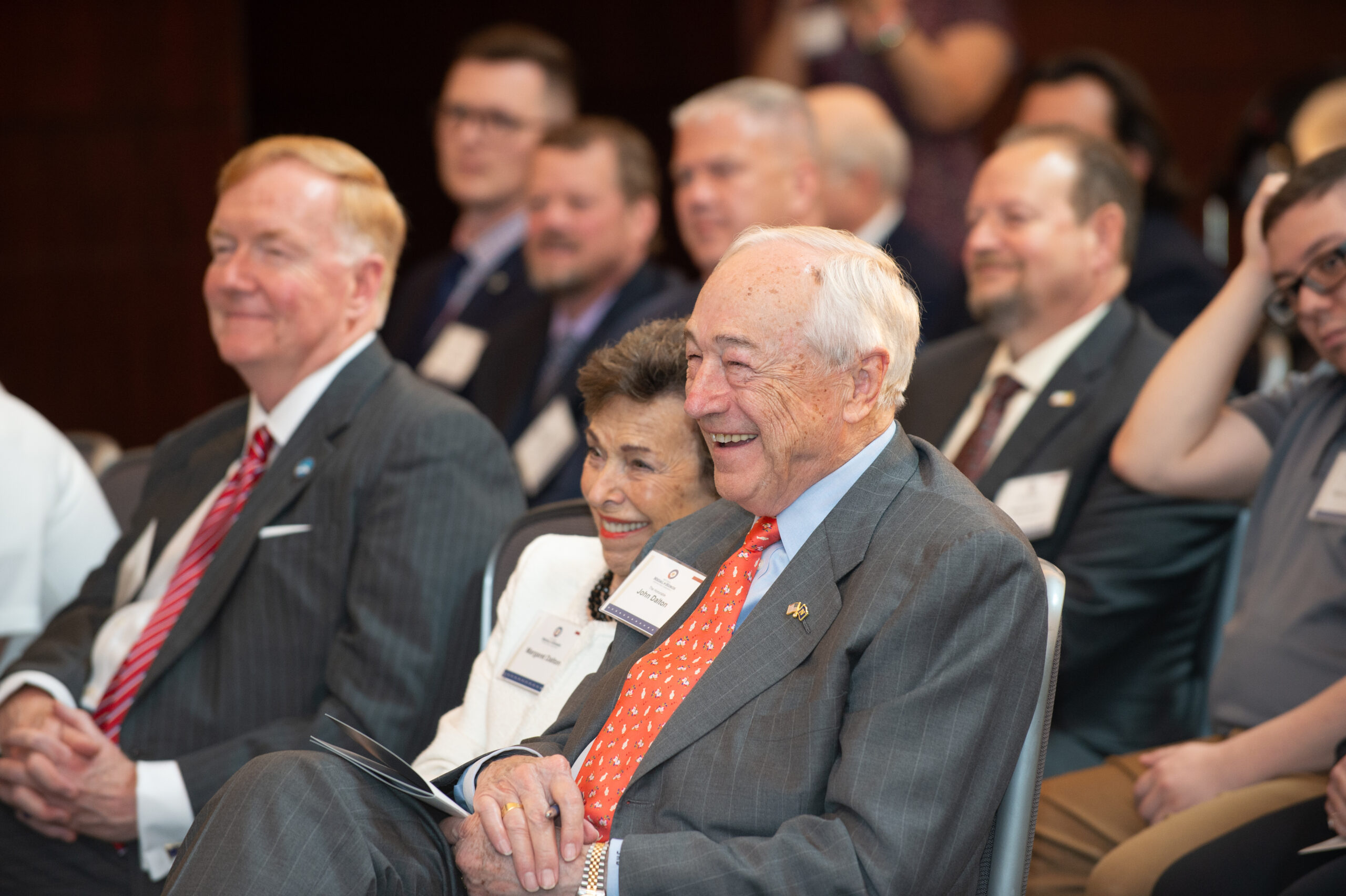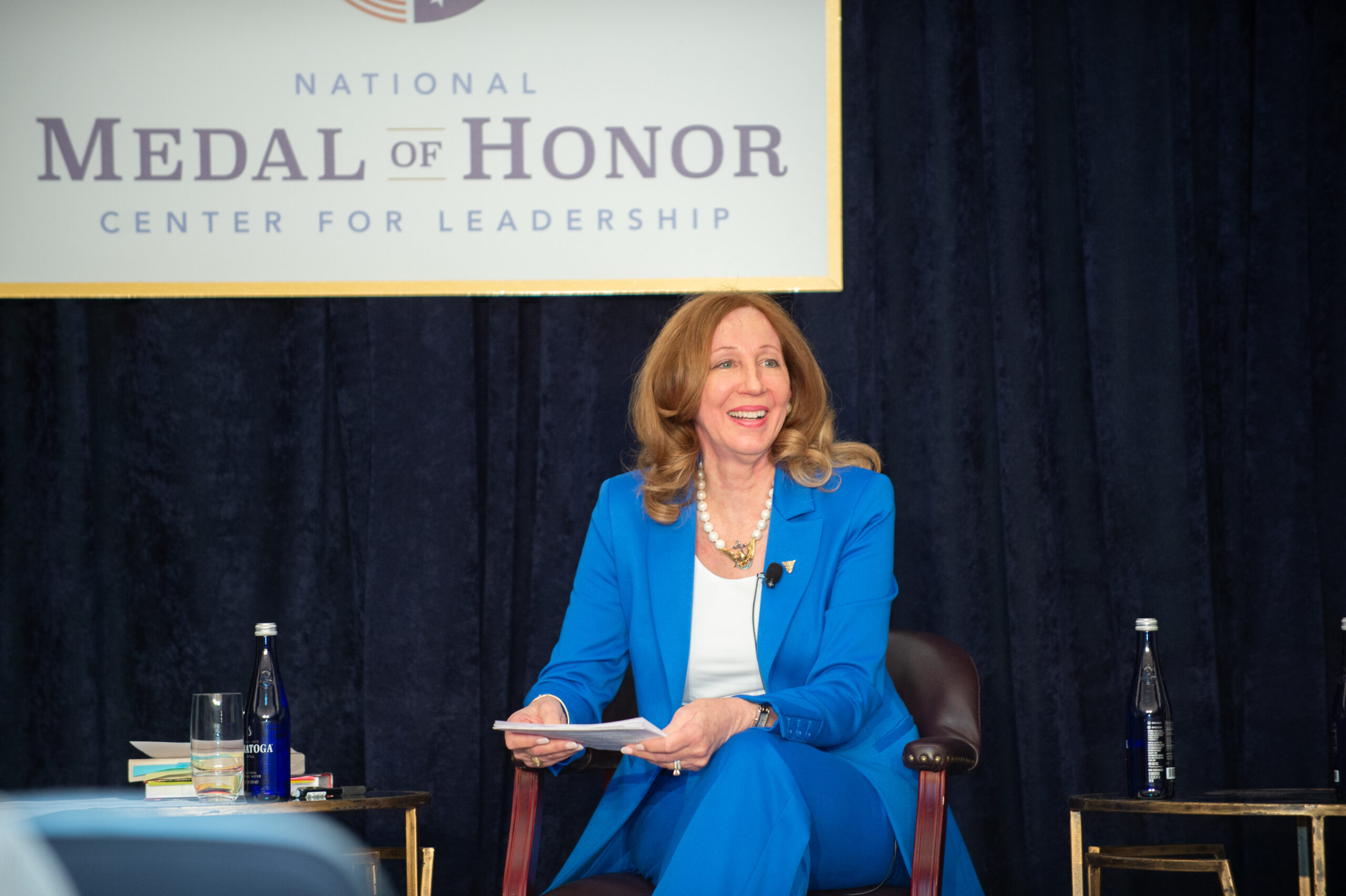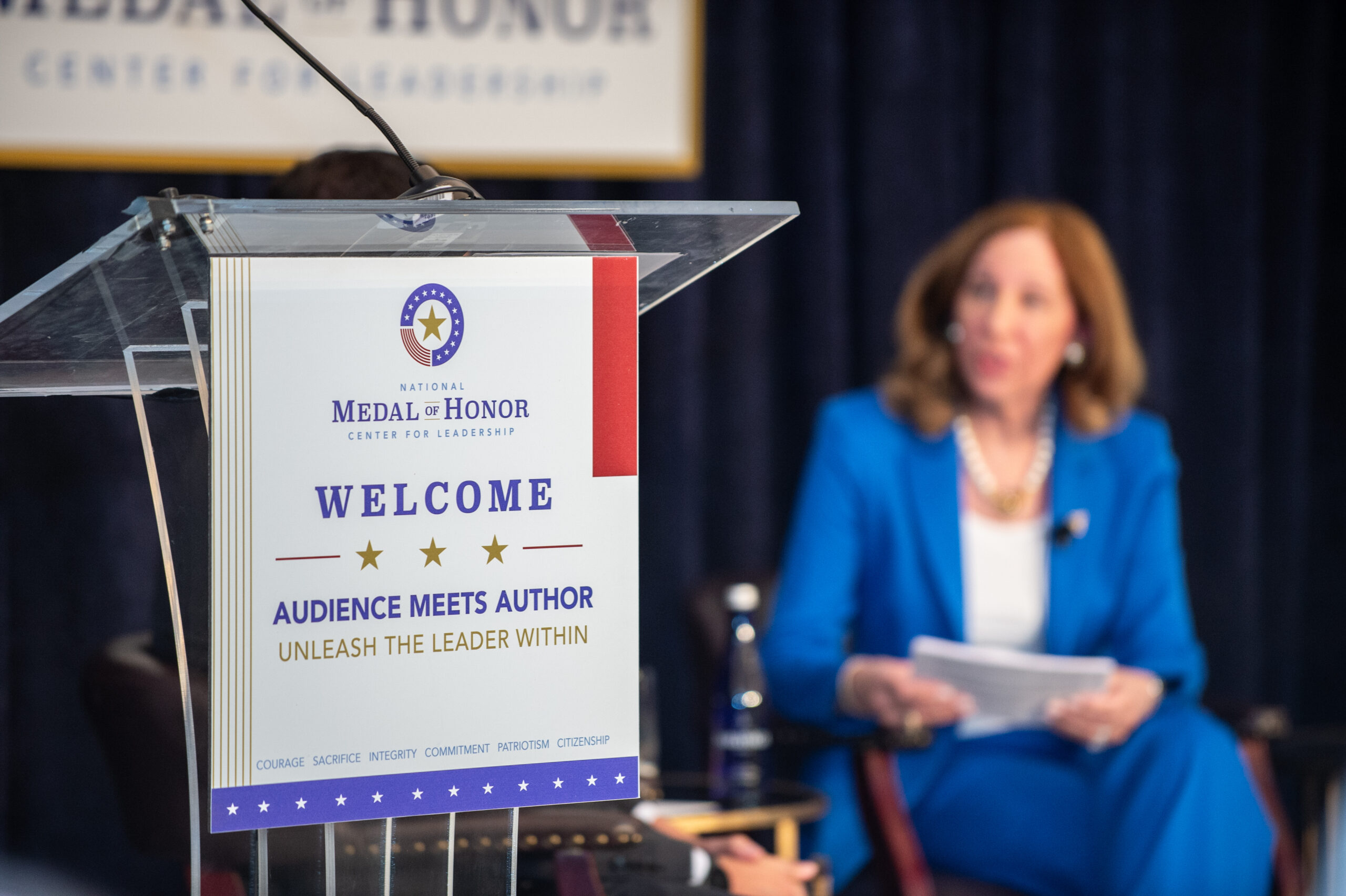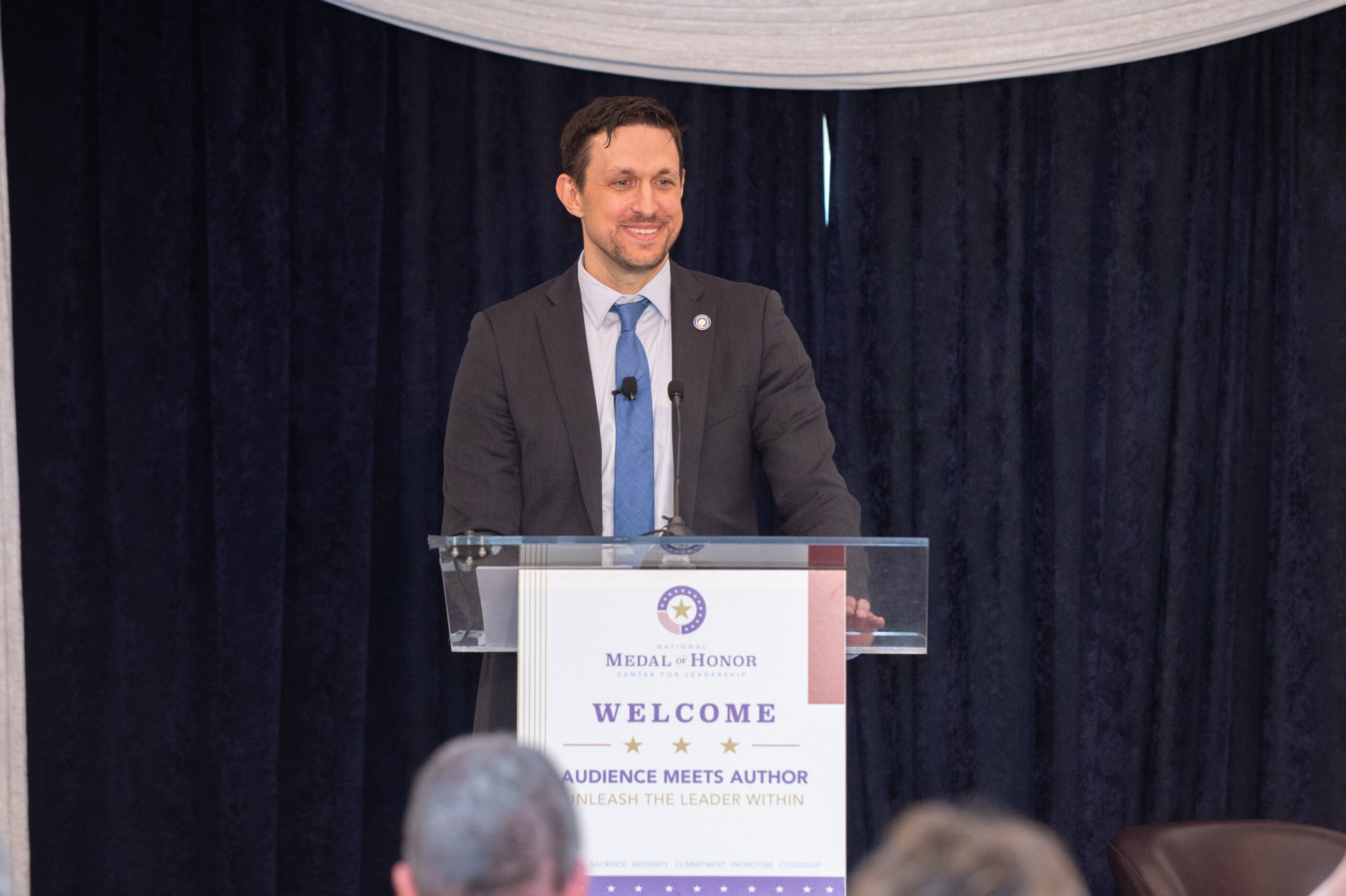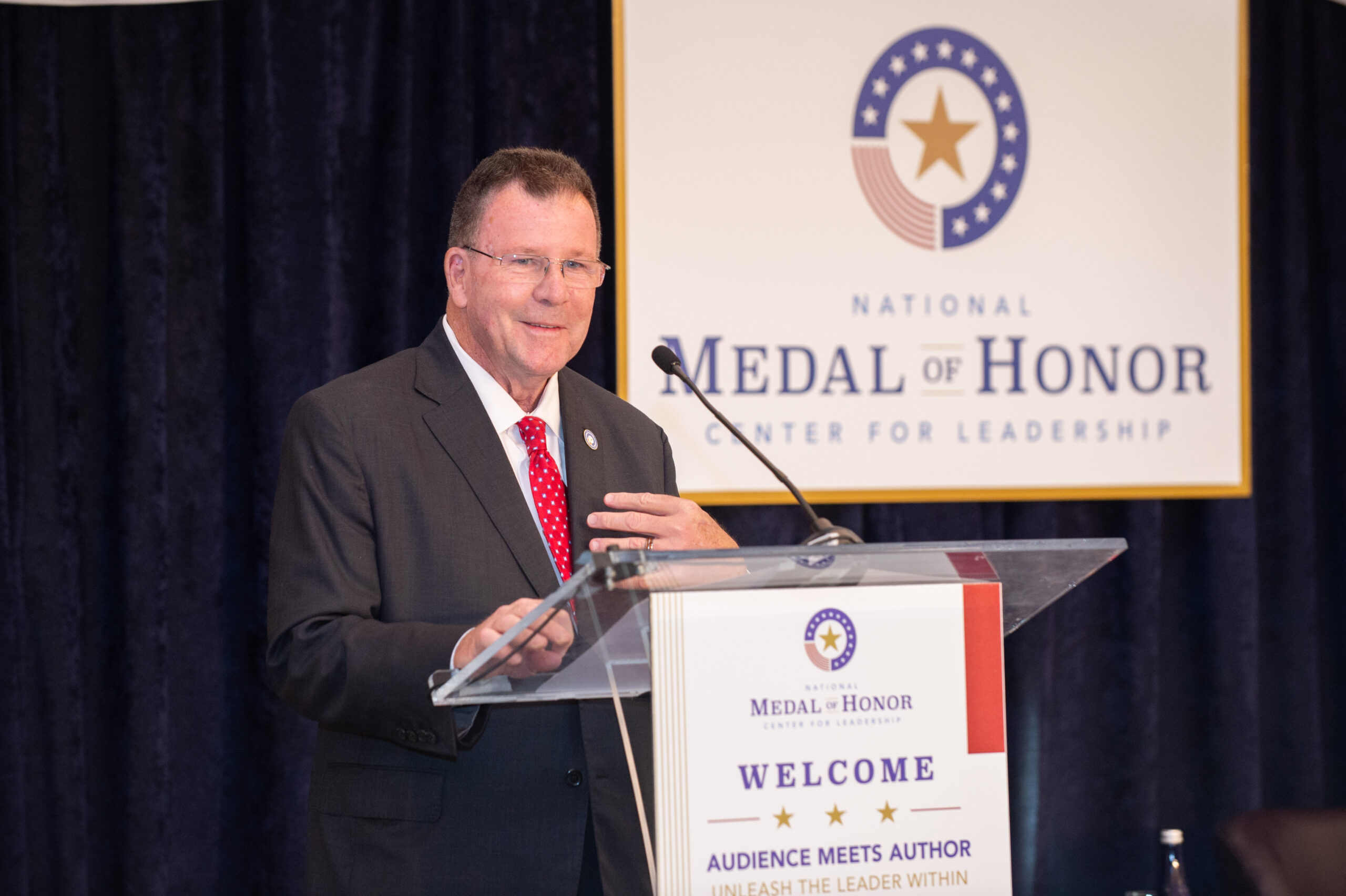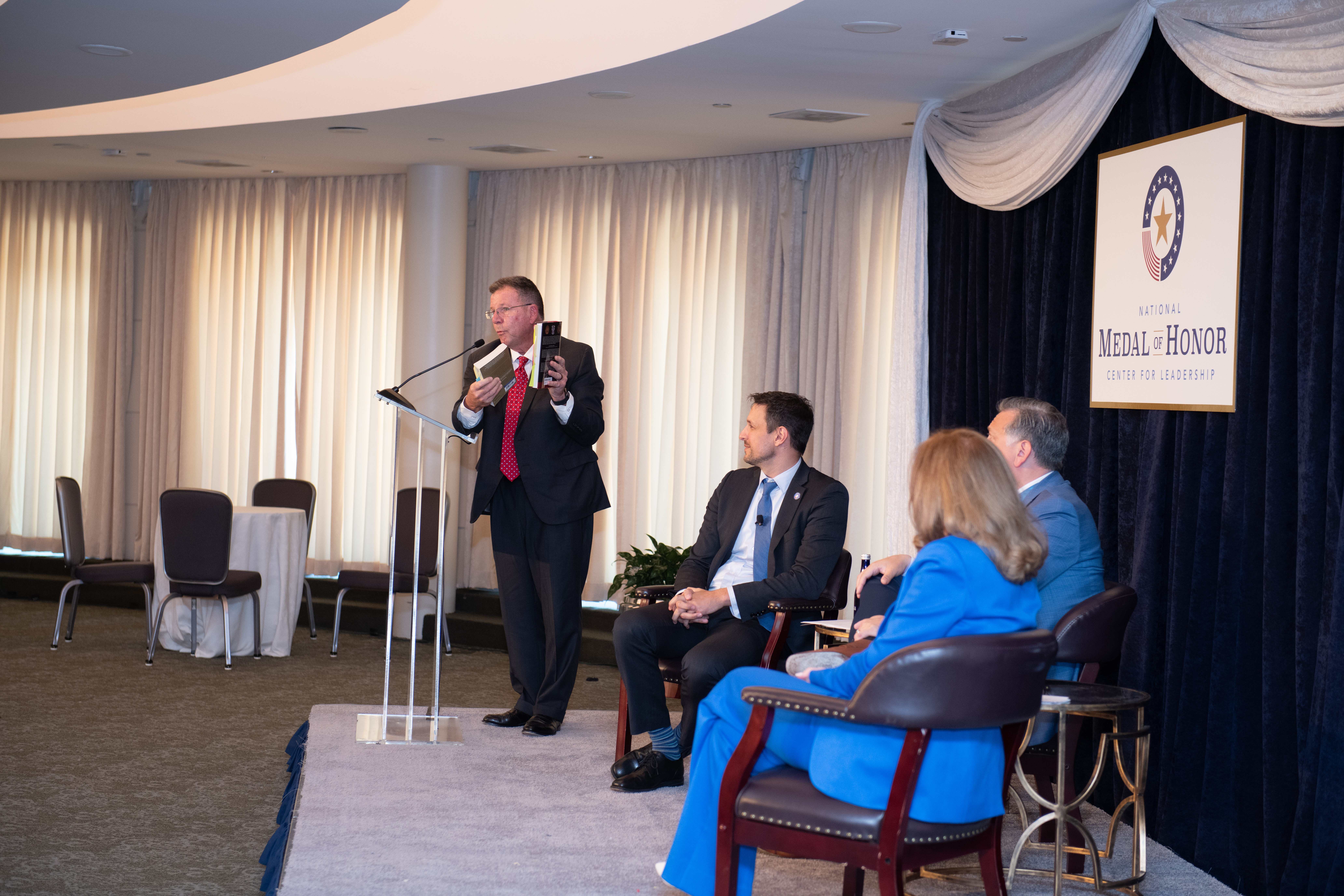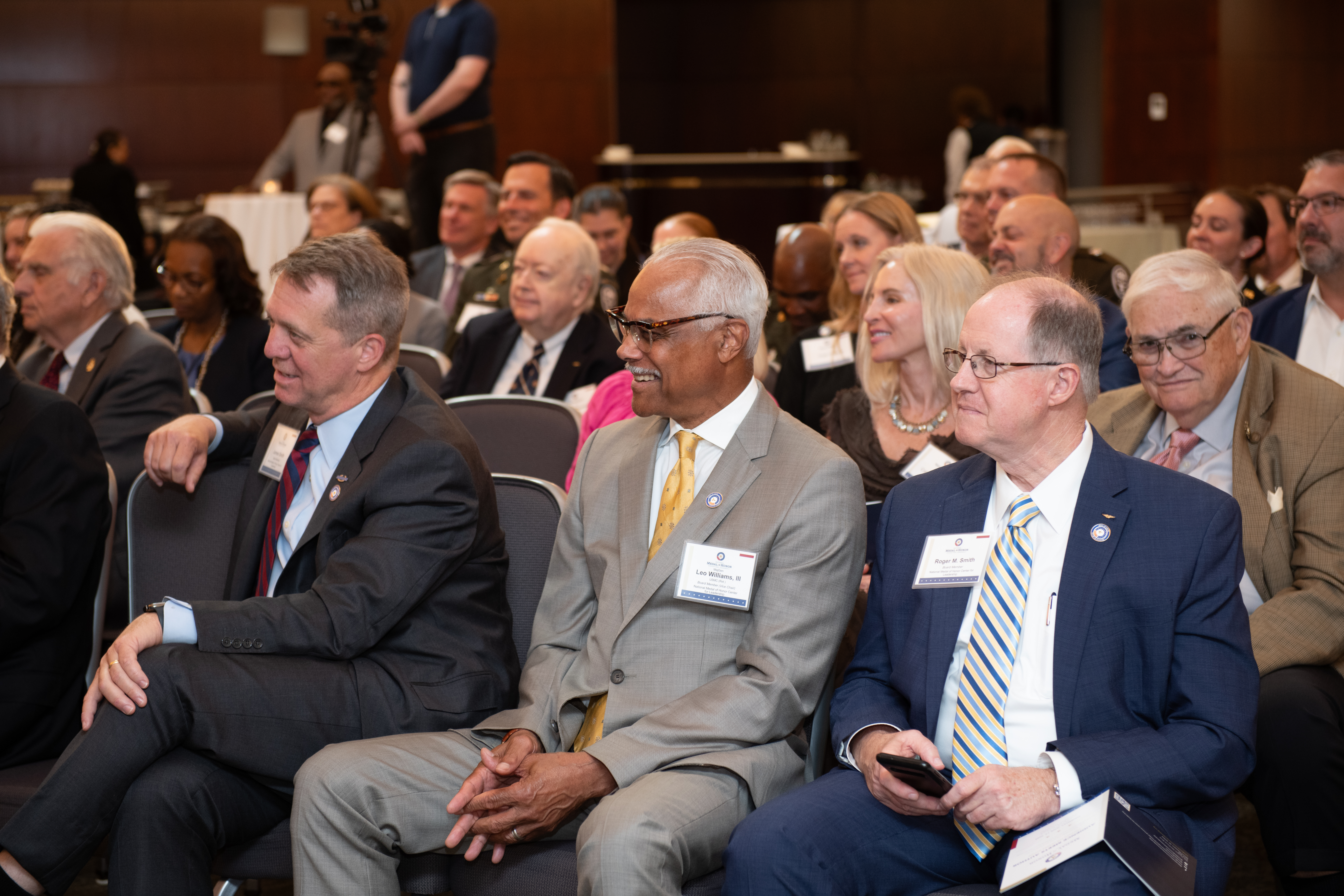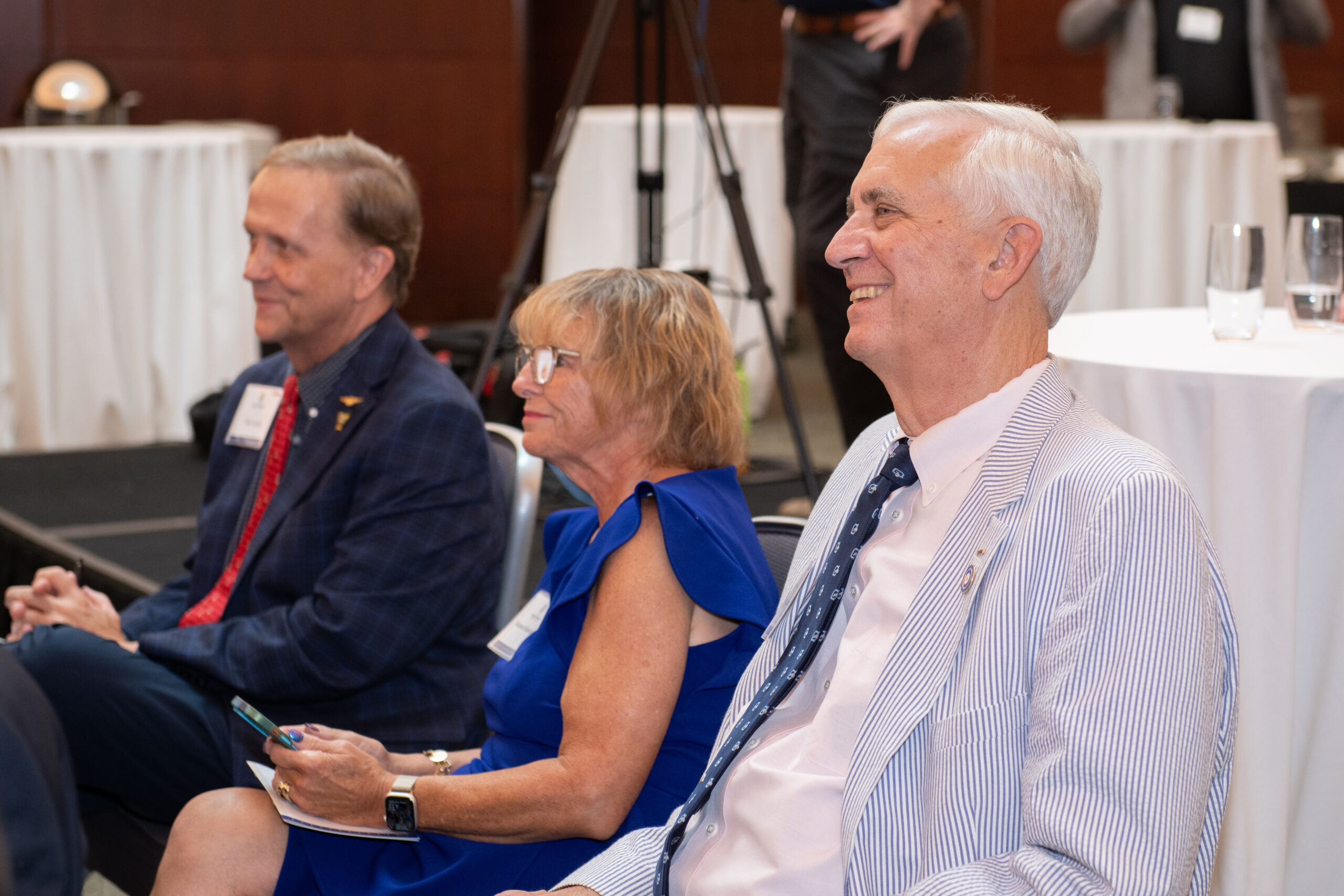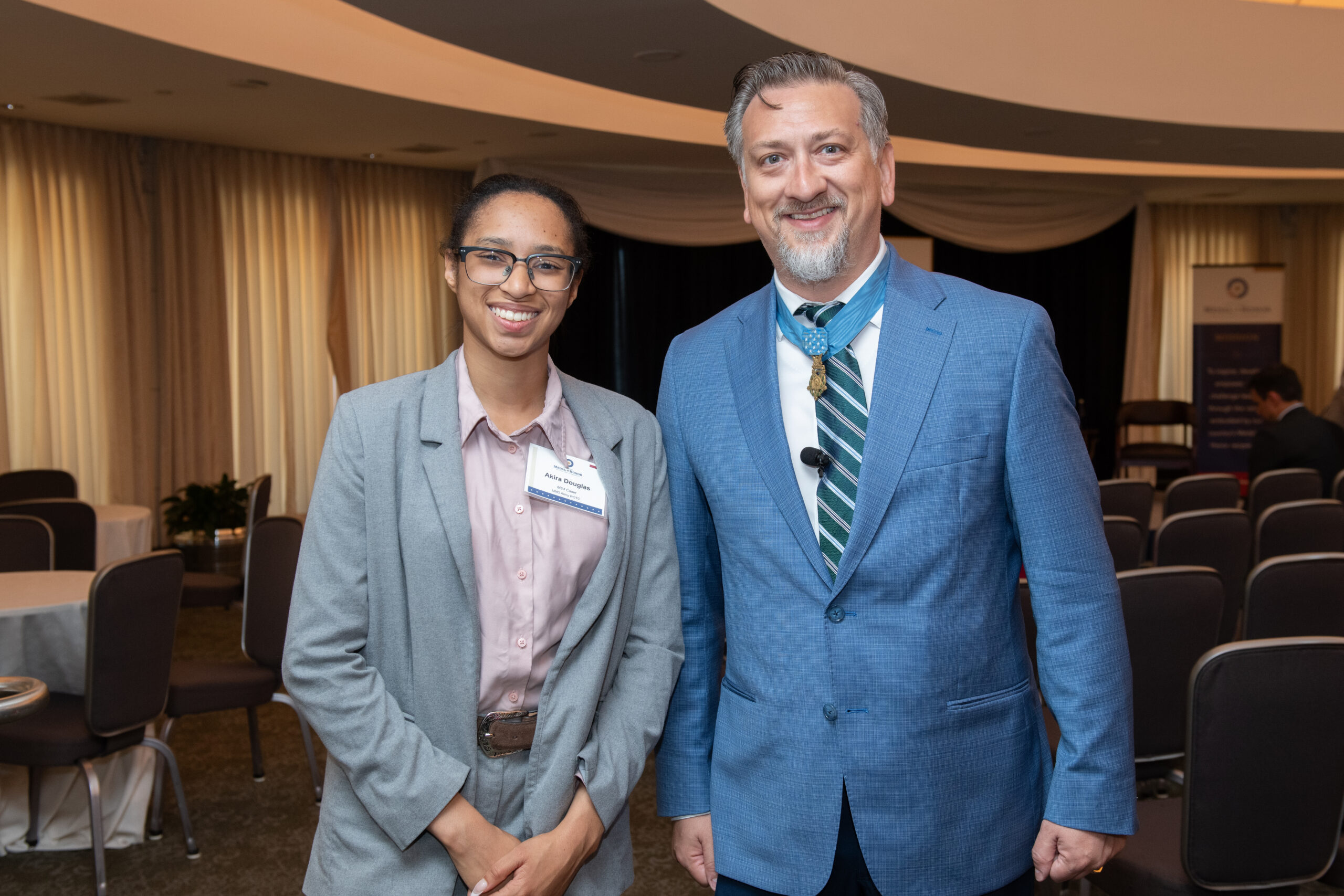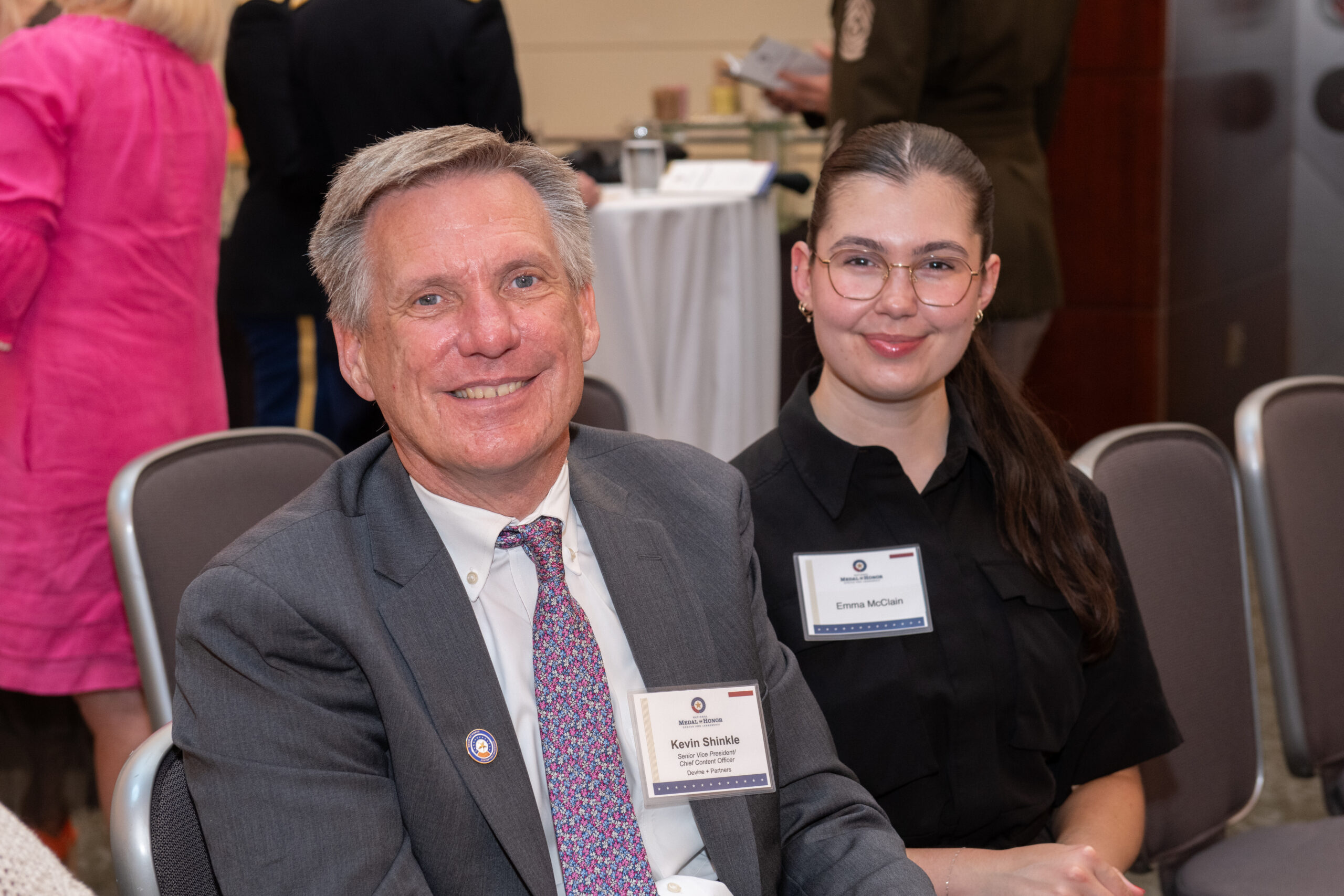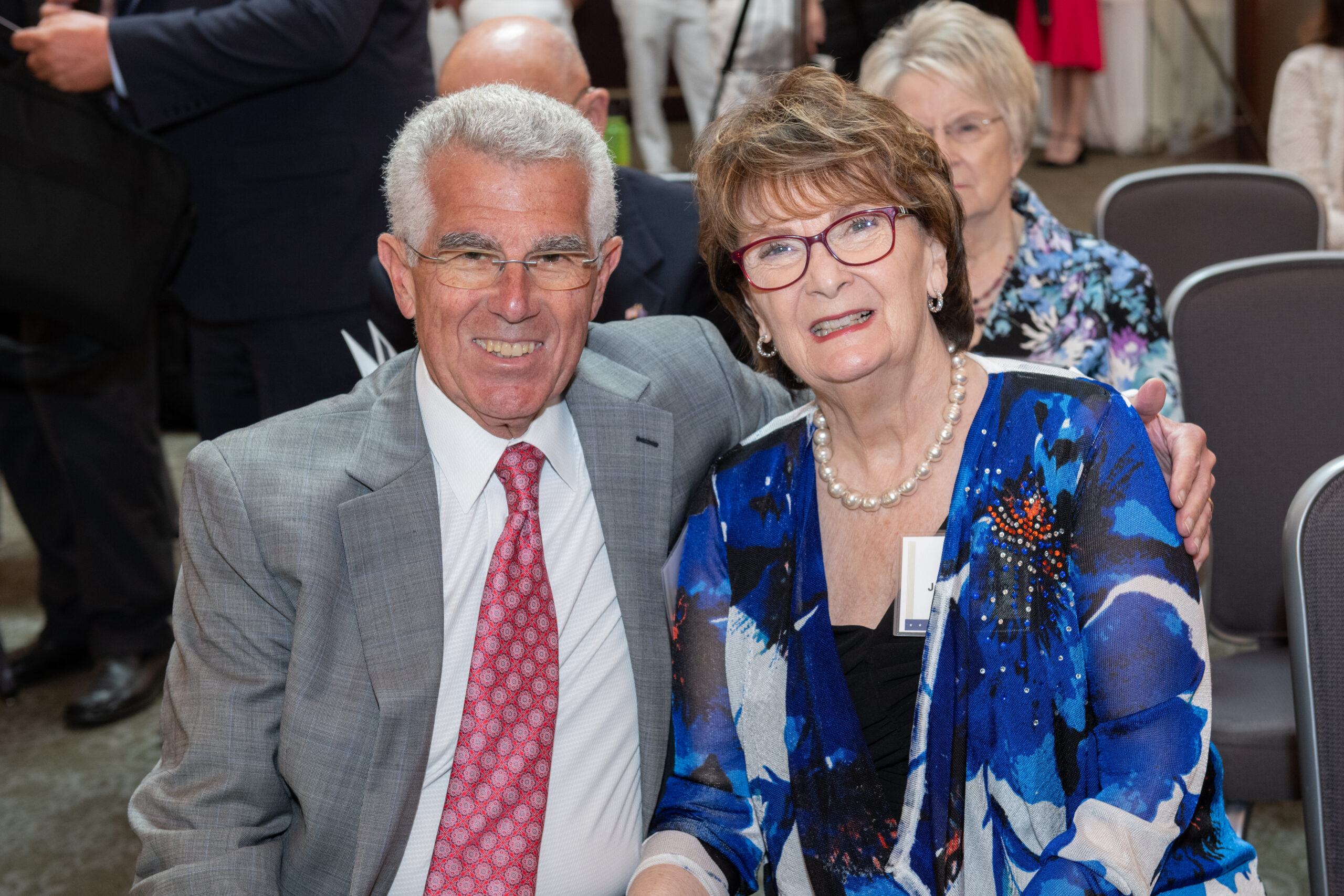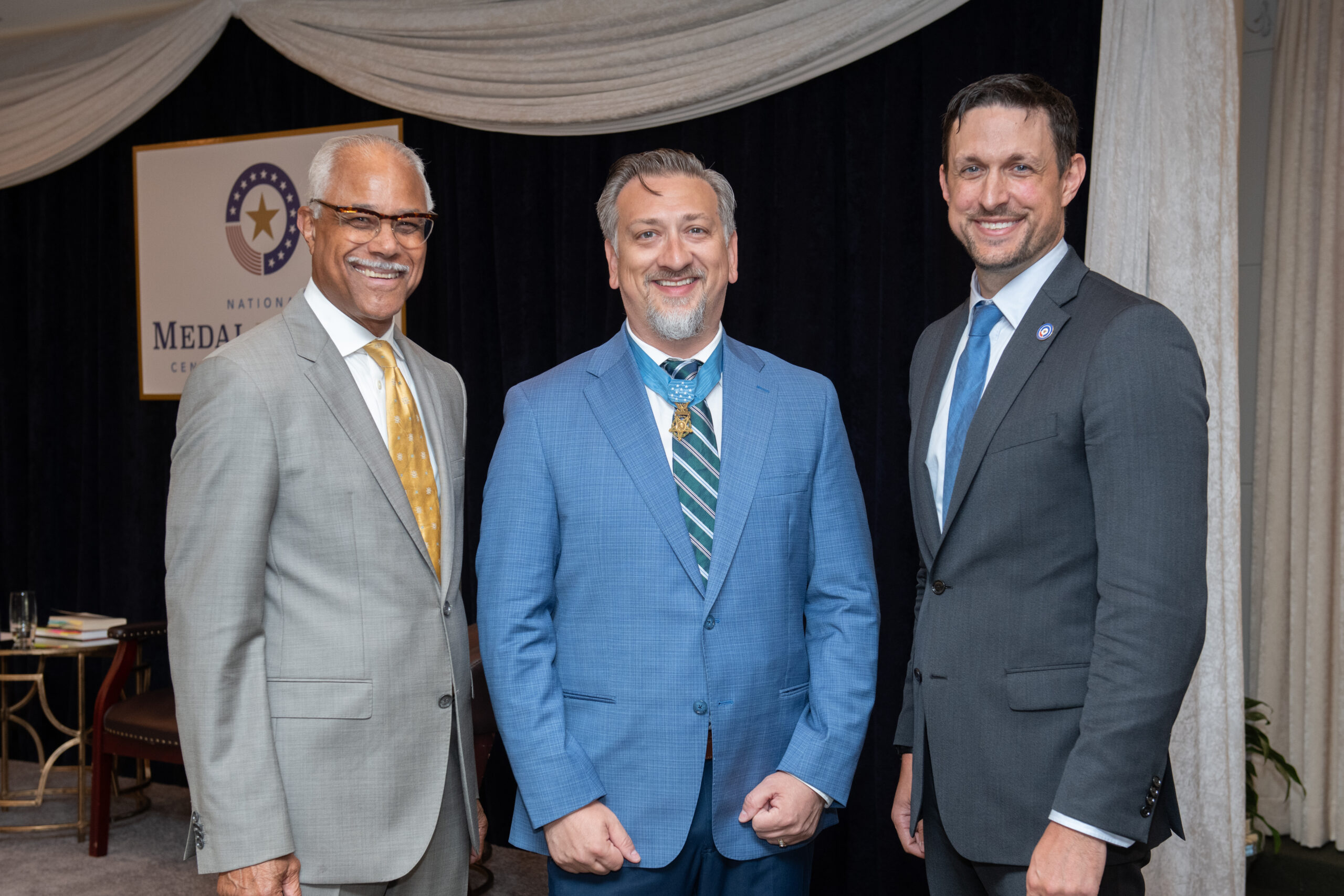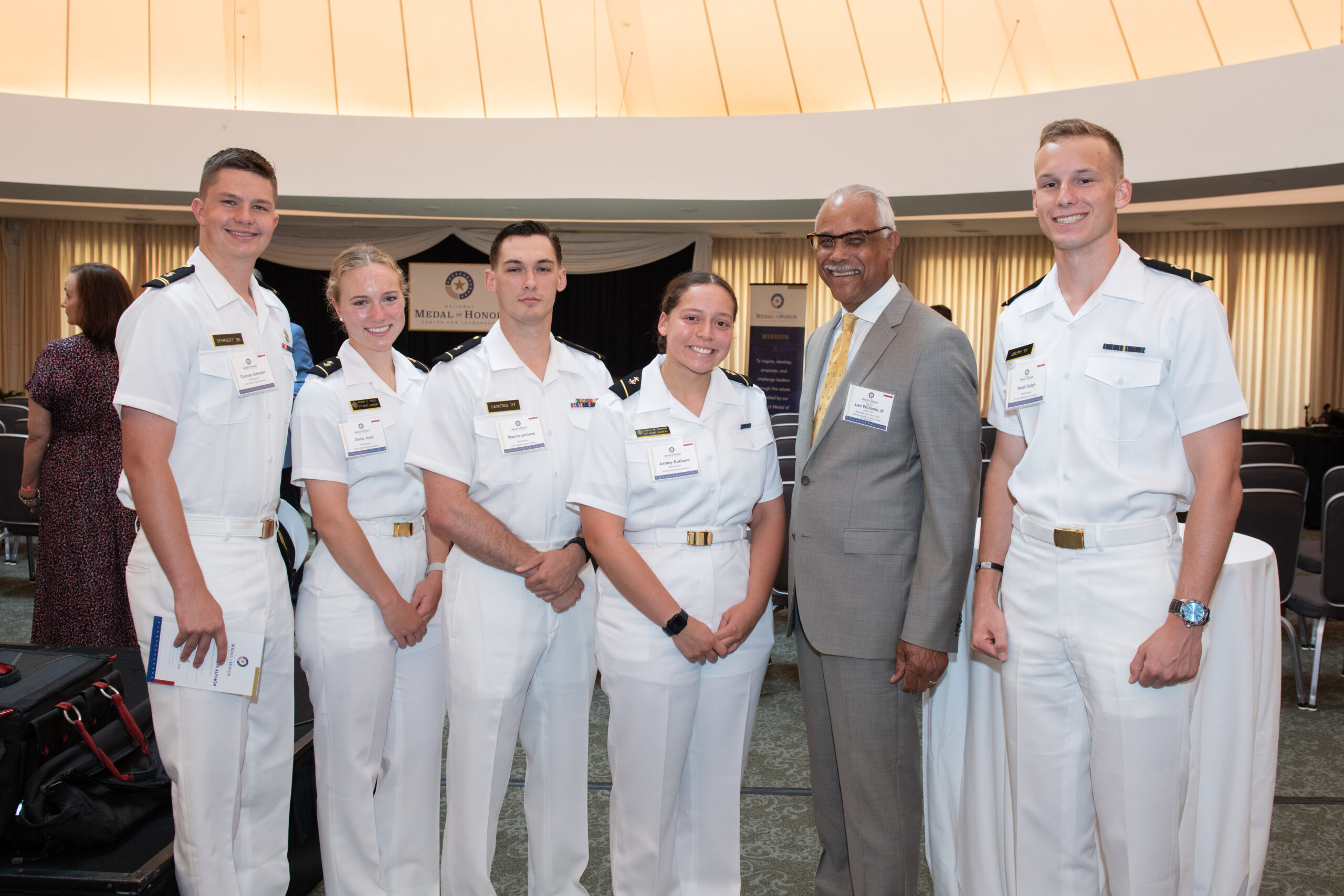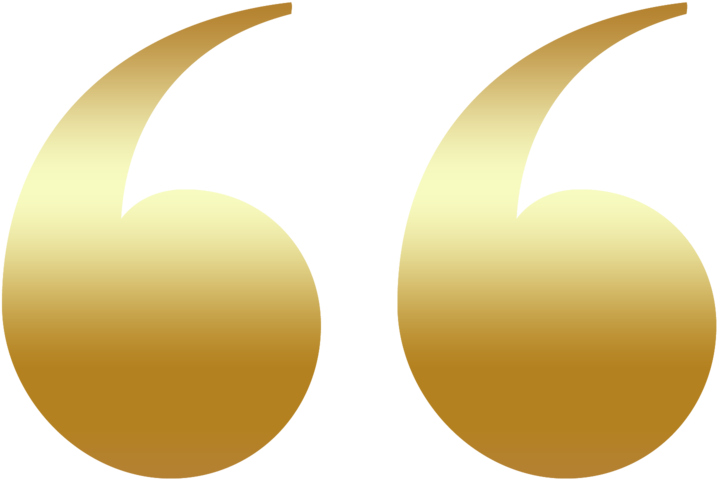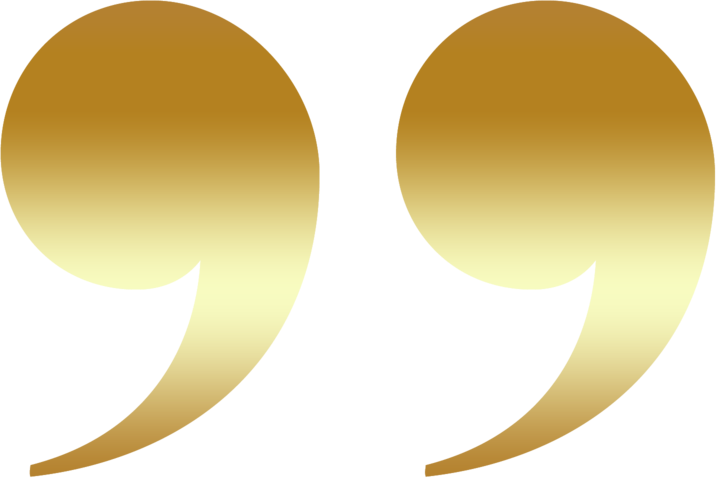The theme of the event was “Unleash the Leader Within: The Power of Values-Based Leadership” and featured authors Dr. Jennifer London and David Bellavia, the only living Medal of Honor recipient from the Iraq War.
Dr. Jack London, the legendary late chairman and CEO of CACI International, was once sitting across from a senior advisor to the king of Saudi Arabia discussing a business deal when the advisor picked up a crystal goblet and noted its pristine quality and beauty.
Then he made a comment that largely summed up London’s success in building and running one of the largest government contractors in the U.S. This is according to Dr. Jennifer London, his wife and the co-author of his memoir, “Ever Vigilant,” as she addressed an “Audience Meets Author” event in Washington D.C., June 13, that was sponsored by the National Medal of Honor Center for Leadership.
“He compared the goblet to trust, and he said that trust, if it was lost – just like the goblet if it were chipped or cracked – would lose its value,” she recounted. “And Jack loved that. He used it a lot when he talked about trust. A contract can be written on paper, but a trusting relationship is between people.”
The theme of the event was “Unleash the Leader Within: The Power of Values-Based Leadership” and featured Dr. London and David Bellavia, the only living Medal of Honor recipient from the Iraq War. Bellavia is the author, most recently, of “Remember the Ramrods: An Army Brotherhood in War and Peace,” a memoir of life after his military service and his drive to bring together his former unit around his receiving the nation’s highest award for military valor.
The panel was hosted by Dr. Justin Habash, director of education at the National Medal of Honor Center for Leadership and the assistant dean of teaching and learning at Johns Hopkins University’s Carey School of Business. The Leadership Center is creating a suite of programs that help leaders in different places along the lifelong learning spectrum to develop the character skills necessary to be successful leaders. This curriculum is rooted in the core values of the Medal of Honor: courage, sacrifice, integrity, commitment, patriotism, and citizenship.
“He compared the goblet to trust, and he said that trust, if it was lost – just like the goblet if it were chipped or cracked – would lose its value,” she recounted. “And Jack loved that. He used it a lot when he talked about trust. A contract can be written on paper, but a trusting relationship is between people.”
– Dr. Jennifer London on her late husband, Dr. Jack London.
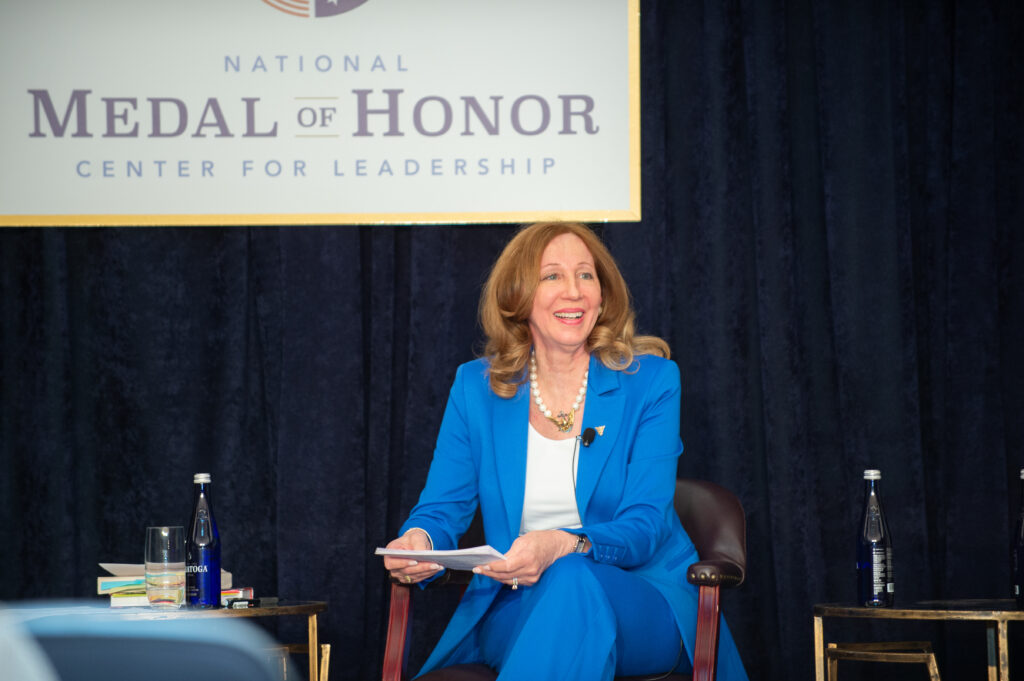
Part of the digital curriculum, aimed at professional managers and those who want to lead, will be rolled out later this year. The Center is also raising money to build a conference facility in Mount Pleasant, SC, at Patriots Point, home of the Yorktown and the Congressional Medal of Honor Museum.
“There is no group of people in our country that has embodied the word selflessness more than our Medal of Honor recipients,” said Thomas Mundell, president and CEO of the Center. “They met their moments. Now we’re trying to get people throughout the rest of our country to meet their moments and take their lives to a different level.”
The panel discussion was another in a series of events the Center is holding around the country to focus on the importance of values-based leadership. Nearly 100 people attended, including former Secretary of the Navy John Dalton, midshipmen from the U.S. Naval Academy, members of Congressional staffs, and other corporate and non-profit leaders from the region.
Dr. Jennifer London on Dr. Jack London’s four attributes of new hires:
“The first was that the person had to have a good attitude because obviously if someone is positive and consistently has a good attitude, they’re someone we all like to work with. The second requirement is that they had to have high integrity. The reason is that people who could be relied on are the people we want to work with and have good judgment to do the right thing.
“The third requirement on the list was a solid commitment. And the reason that was important is because if somebody is not fully committed to the company and its goals, they won’t be committed to the customers either. And so, he felt that was important as well. The last thing on his list was expertise.
“And you’re thinking, well, why wouldn’t that be first? Jack made the point that if you have somebody who has an attitude problem or who’s difficult to work with, it doesn’t matter how much expertise you have. If they’re not reliable and not fully committed to the project, then they won’t be able to fit in and they won’t support the organization; people need to trust their leaders.”
David Bellavia on the power of storytelling:
“What I found so strange about being in a group of recipients of the Medal of Honor is they all have these incredible stories and yet none of them want to tell them. And so, when I met Terry Bradshaw a couple of years ago, he has seven memoirs, and he doesn’t get to the Fox Sports years in any of them. He’s just focused solely on being a quarterback. And I thought to myself, you know what, if he just wrote a “themoir”, what if you just tell the story of your men, the story of your soldiers, and realize that we’re all you know, I’m a product of my leadership. That’s who I am. That’s how I was raised. My Army officers raised me.”
Dr. Jennifer London on Dr. Jack London’s defining character trait:
“The Washington Post asked Jack this years ago, about his defining character trait. He said determination. And I think you see that throughout his life and his career, it was simply determination. Pushing through. I think, you know, a takeaway from the book is I think we can all be impactful if we think about what I call the forces and the V: commitment, character, courage, confidence, and then the V being vision.”
David Bellavia on the importance of values:
“Fidelity is all we have, you know, and your word, everything gets boiled down to its most basic elements of humanity. The military taught me that the community is only as strong as the individuals in it. And the community and the team are built on fidelity, integrity, trust, these values. I mean, you can say whatever you want but at some point, you’re either running towards the tracers or you’re not. You can’t fake that.”
Dr. Jennifer London on Dr. Jack London’s approach to culture:
“Culture was something that was made very clear to Jack early on at the Naval Academy and in his Navy career. The Navy’s culture of honor, courage and commitment were something that he internalized. He said they really created the foundation for his success. And so, he incorporated these values into his leadership. And he emphasized them, you know, throughout his life in the 1980s he decided to document cases, culture and to create a formal ethics policy inside the company.
“And in a large company, when, you know, 23,000 people, Jack found ways to monitor, evaluate and reinforce character. You have to make it a priority and Jack felt it. Ethics was the single most important thing that CCI brought to its customers and its national security missions.”
Rob Couture, director of communications and public affairs, Veterans of Foreign Wars, Washington D.C. office on values:
“For me, your values are your compass. If you have the compass, you can set the azimuth and shoot that azimuth and get to your location on a map, but a map is just two-dimensional. It’s when you see the earth you see the hills and valleys; you see the terrain features, the river, and the trees. Just like in life, you have those hills and valleys, those ups and down in which we might be questioning whether we’re going in the right direction. If you have your values and set your course right, you’re going to get to where you need to go.”

